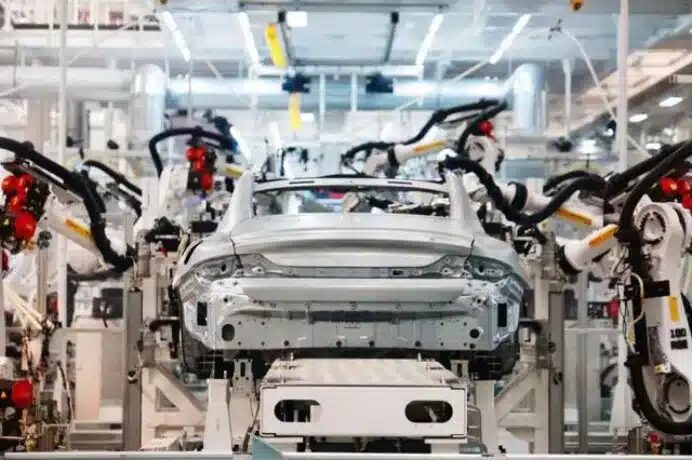Xiaomi SU7 has become the most sought-after car in China, with the company receiving orders for the entire year 2024 within 24 hours of its launch in March earlier this year. With such a huge number of orders in hand, the company needs to have a very robust production system to timely deliver the vehicles.
The company recently celebrated rolling out 10,000th units of SU7, that too within just 32 days of launch. So how was Xiaomi able to produce cars at such an astoundingly fast pace? Well, the answer is below.
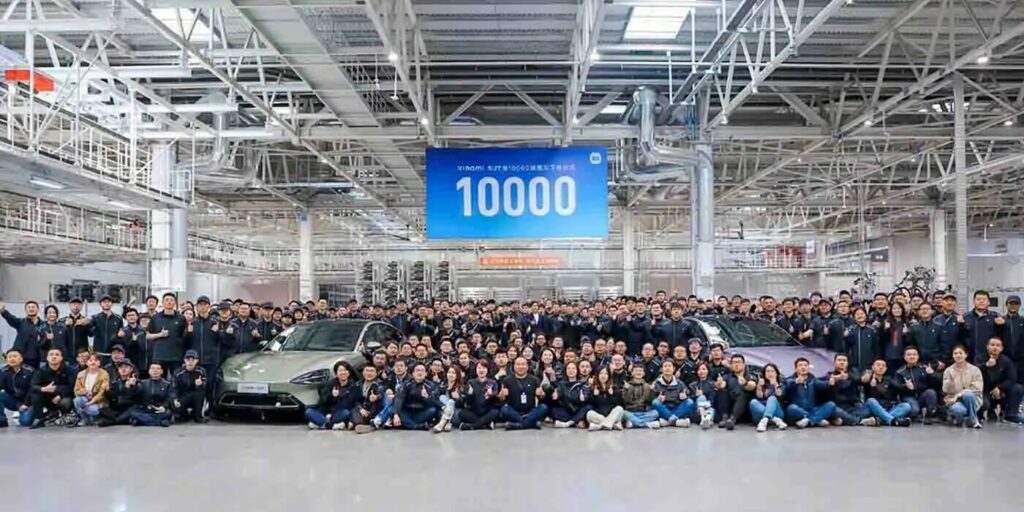
Now Xiaomi has given details of the innovations it is using as part of its production process. While Tesla’s process is known as gigacasting, Xiaomi uses both gigacasting as well as stamping to produce the SU7. Furthermore, Xiaomi claims to be the only Chinese automaker that utilizes the two technologies of self-developed die-cast alloy materials and self-developed large die-casting equipment cluster system.
Related: People Queue Hours to See Xiaomi SU7 Closer at Beijing Auto Show
Tesla pioneered the use of large-scale die-casting, the use of which can replace many individual components that would be assembled into a larger component with a single casting. From a manufacturing perspective, it means that the factory needs less floor space while for the car there is better safety as the car now has increased rigidity. Furthermore, usually die-cast parts are lighter which helps increase the car’s range. Several Chinese automakers including XPeng and Nio have subsequently started using die-casting technology.
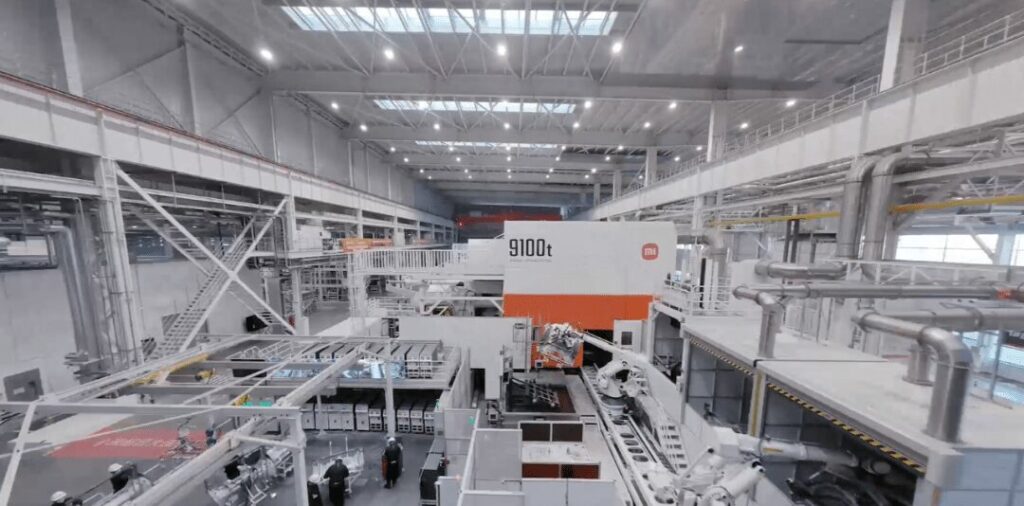
Xiaomi’s system was self-developed in conjunction with Haitian. Covering an area about the size of two basketball courts the machine is marked with the name 9100t, which refers to the clamping force of the machine.
Related: Xiaomi CEO Drove an SU7 from Beijing to Shanghai
The machine creates the rear floor assembly of the Xiaomi SU7 and reduces 72 parts that previously required stamping and welding down to just one die-cast part which can be produced in 100 seconds. For production, this means 840 fewer welding points and a 45% reduction in production time. Whereas for the car, it means the component is 17% lighter and also results in a 2dB reduction in road noise. Furthermore, it increases the life expectancy of the integrated floor panel meaning it can easily achieve mileage of over 2 million kilometers, over 10 times the life expectancy of a traditional floor panel.
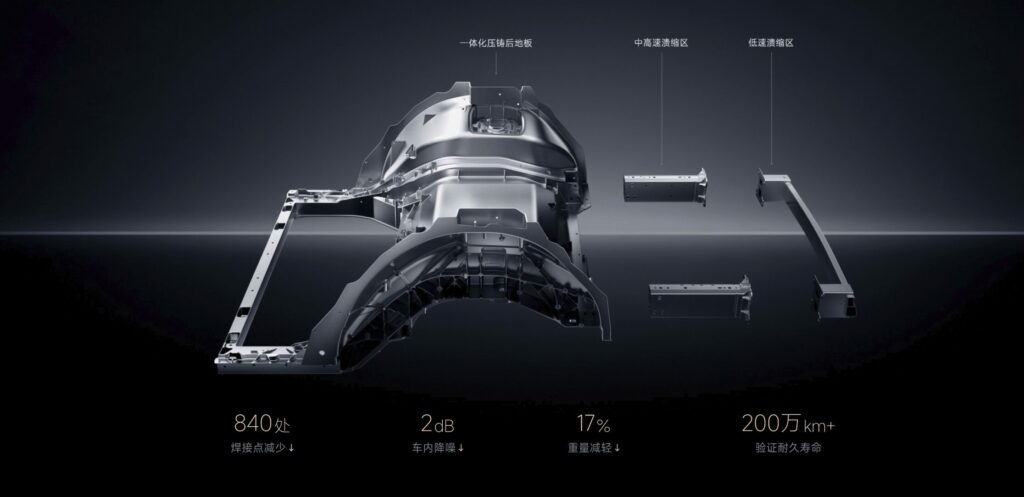
One major criticism of such manufacturing has been the expense of replacing the part if it is damaged. Xiaomi, however, has reportedly implemented a three-stage anti-collision design. This means that in the event of a low-medium speed collision, only the anti-collision beam and crumple zone need to be replaced.
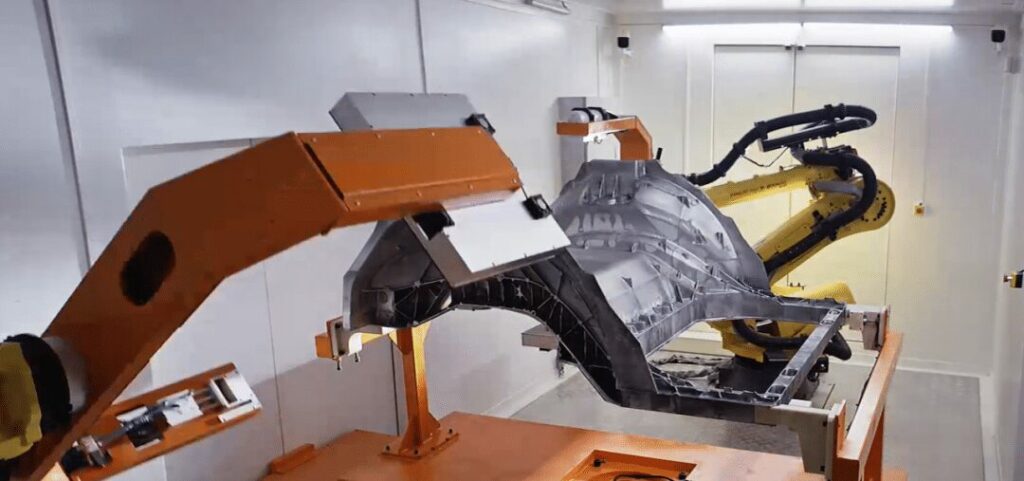
Xiaomi has developed an entire die-casting machine group system consisting of 60 devices and 433 processes, of which the Xiaomi Super Die Casting 9100T is only one of them. R&D from Xiaomi’s team resulted in 11 patent design innovations and improvements to the industry’s existing die-casting technology including an AI active injection optimization parameter system.
Xiaomi SU7 body shop production line shows a high degree of automation
In the paint shop, Xiaomi’s quick color change system can be used to quickly fill, clean, and quantitatively supply paint of each color, achieving step-less switching of vehicle color, with a switching time of only 40 minutes. Through the flexible color sorting system, the colors of the order library can be intelligently grouped to reduce the frequency of paint color changes; a new “order pull” generation method can also be established to reduce order delivery time by 25%.
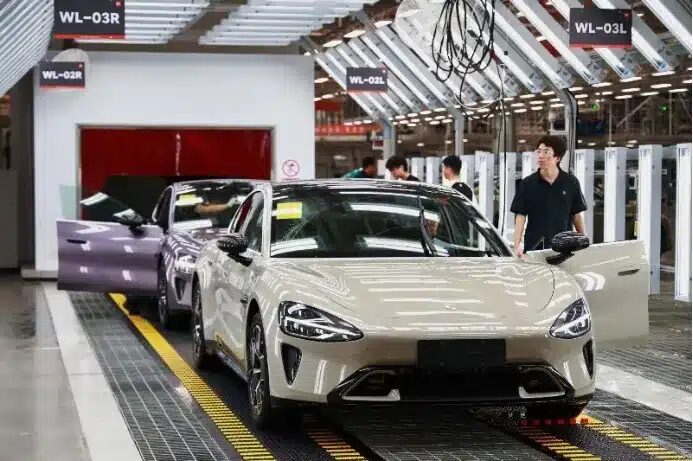
In the final assembly workshop, the front and rear windshields and panoramic canopy are automatically assembled by robotic arms; the battery assembly and positioning accuracy of the body reaches 0.1mm, and the gap is so small that it cannot even fit a piece of A4 paper. Here, the entire process from parts to car body assembly takes less than 30 seconds, which is twice as fast as that of traditional car companies.
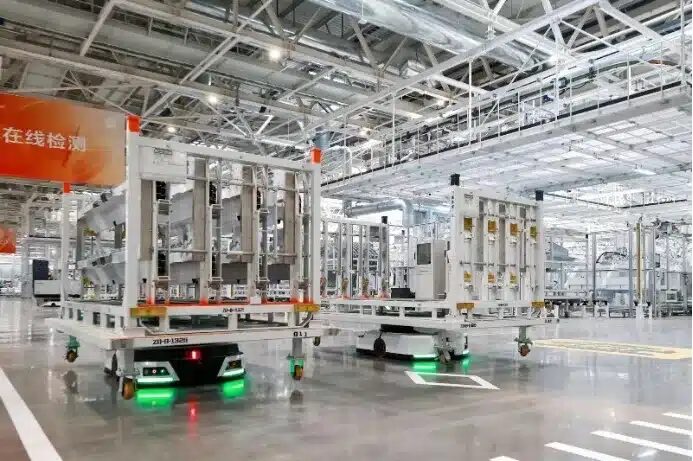
The factory producing Xiaomi cars has a high degree of automation and when it ramps up to capacity will be able to produce 40 cars an hour, or one every 76 cars seconds. There are over 700 robots in the factory and 181 autonomous mobile robot (AMR) units delivering stamped parts. Each AMR uses Lidar to find its way around the factory floor. Machines are also used for quality inspection, the X-Eye inspection system has an accuracy of 99.9% with pointing out defects instead of the human eye.
https://youtu.be/OOdek-fDv6o

A computer animation professional with over 23 years of industry experience having served in leading organizations, TV channels & production facilities in Pakistan. An avid car enthusiast and petrolhead with an affection to deliver quality content to help shape opinions. Formerly written for PakWheels as well as major publications including Dawn. Founder of CarSpiritPK.com

